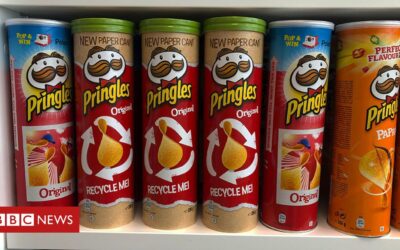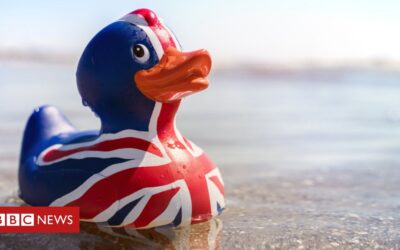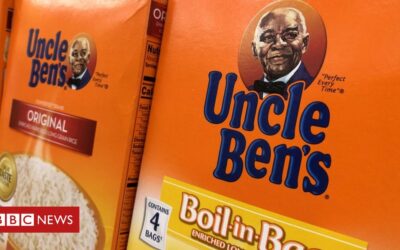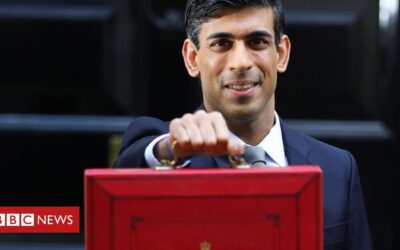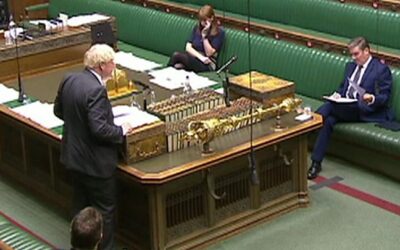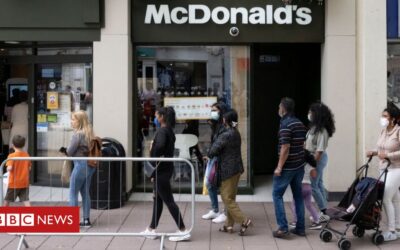“I was shocked to receive a notification saying that my bank account is going to be closed in two months,” says Sharon Clarke, a Briton who has been living in the Netherlands for 20 years and who banks with Lloyds.”They said that unless I provide a UK address, my account will be closed and I’ll have to cut up my card.”She is one of thousands of British expats living in the EU who are being told their bank accounts will be closed because of Brexit.Lloyds Bank has written to 13,000 personal and business customers, saying it will no longer be able to offer banking services once the Brexit transition period ends on 31 December.And Money Box found Barclays, Barclaycard and Coutts – which is owned by NatWest Group – are taking similar action.Experts say it is because lenders will lose their EU banking licences, making operating in some countries too costly.However, HSBC and Santander say they have no plans to close British expat accounts in the EU.Ms Clarke says she has been given until early November to close her account and transfer all monies, standing orders and regular payments to another bank.She says she has never had any financial problems with Lloyds, having banked with them “for decades”.Britons living in the Netherlands, Slovakia, Germany, Ireland, Italy and Portugal have all been sent similar letters.One of them is Robert Kane, who lives in Spain and has a Barclaycard credit card. “I find this an unbelievable situation that Barclaycard will lose so many thousands of customers because of Brexit,” Robert says. “I don’t have a UK address as I live in Spain and have done for the last 14 years. They did not offer me any advice other than cut up my card, cancel any regular payments and carry on paying outstanding balances.”A source at NatWest, which owns Coutts, says it has no intention of closing accounts unless there is no other option and any customers who may be affected will be contacted.’Postcode lottery’Sarah Hall, a fellow at UK in a Changing Europe, a research unit at King’s College London, says that EU-wide banking rules will not apply to Britain after Brexit.UK banks will no longer be allowed to provide services to customers in the EU without the right banking licences. This is known as passporting, a system for banks in the EU which allows them to trade freely in any other state in the European Economic Area (EEA) without the need for more authorisation.Sarah said that although HSBC and Santander will still offer banking, others feel it is not worthwhile commercially. “Some UK banks decided the size and scale of the client base is small, not profitable enough to warrant a subsidiary, so they have determined they will exit that market. It’s a potential postcode lottery.”This means the market will be harder to navigate as a customer. It’s less certain and could mean less choice and maybe higher interest and lower saving rates because of less competition.”Variable impactIn a statement, Lloyds said: “We have written to a small number of customers living in affected EU countries to let them know that due to the UK’s exit from the EU, regrettably we will no longer be able to provide them with some UK-based banking services.”Barclays would not reveal how many accounts are going to be closed, but said it would be contacting affected customers.The UK trade body UK Finance said the finance industry had been working hard to get ready for Brexit.”Where possible, firms want to keep providing banking services to customers living in the EEA after the transition period. “The impact on each customer will vary depending on the operating model of their bank or provider, the product or service being provided, and the legal and regulatory framework in the country in which they are resident.”You can hear more on BBC Radio 4’s Money Box programme by listening again here.Follow Money Box on Twitter.
BBC Business News Articles
Brexit: Seven things changing in January and others that remain unresolved
By Paul KerleyBBC NewsRelated Topicsimage copyrightGetty ImagesMany aspects of the UK and the European Union’s future relationship remain uncertain – but we already know some things will change from 1 January 2021.Here are some of the most important things for individual citizens to think about, and others which still remain unresolved.1. European trips will need more planningFrom January, to visit any EU country – or Switzerland, Norway, Iceland and Liechtenstein – make sure you have:2. You’ll stand in a different queue at bordersAt border control, you should use separate lanes from EU, EEA and Swiss citizens. Be prepared to show your return ticket and prove you have enough money for your stay. Tourists will be able to travel without a visa to Schengen area countries – which include most EU nations and Iceland, Norway, Switzerland and Liechtenstein – for up to 90 days in any 180-day period. So, a four-day long weekend in Portugal at Easter, followed by a fortnight in France in June, would count as 18 days towards your 90-day limit.From 2022, UK nationals must pay for an electronic authorisation to travel to the Schengen area – similar to the ESTA system in the US.For countries outside the Schengen zone, the rules are similar – but check with the individual country. Business travellers will have more to do and may also need a visa. 3. Duty-free shopping will returnYou can take advantage of duty-free shopping if you travel to the EU from 2021.The amount of tobacco and alcohol you can bring back will be increased, but there’ll no longer be tax-free airport sales of goods like electronics and clothing. VAT refunds for overseas visitors in UK shops will also be removed.4. Moving to the EU? Expect more paperwork From 1 January, free movement of people between the UK and the EU will end.If you’re already living in an EU country, you will have certain protections under the withdrawal agreement.But even then, you should check that country’s specific rules. You may need to register or apply for residency, get new documents, or meet specific requirements – like having a job. For example, UK nationals living or planning to live in France will need to obtain new residence permits. image copyrightGetty ImagesIf you plan to move to the EU in 2021, check the rules for each country. People planning to move to Ireland will be largely unaffected, but rules on driving with a UK licence there may change if there is a no-deal Brexit. 5. New rules for EU citizens living in the UKIf you’re an EU citizen living in the UK by 31 December 2020 – or from Iceland, Liechtenstein, Norway or Switzerland – your rights will remain the same until 30 June 2021.But you should check if you can stay after that. You’ll need to become a UK citizen, or apply to the EU Settlement Scheme.Again, because of the Common Travel Area, rights of Irish citizens will not change.6. There’ll be a new immigration system From January, there’ll be new points-based system for foreign citizens (except Irish nationals) wanting to move to the UK. The government says it’ll treat EU and non-EU citizens equally and will aim to attract people who can contribute to the UK economy. People wanting to move to the UK to work, live or study will have to apply, and pay for a visa. The government’s yet to announce how that’ll work, but will post updates here.EU, EEA and Swiss citizens won’t require a visa for tourist visits to the UK of up to six months. There’s also guidance for UK nationals living abroad planning to return home with family members who aren’t UK citizens.7. Trade will be different, inside and outside the UKimage copyrightGetty ImagesEngland, Wales and ScotlandImporters and exporters will need to make customs declarations, as if they were dealing with countries elsewhere in the world. Some products, including plants, live animals and some foods, will also need special licences and certificates. Others will have to be labelled in specific ways.Northern IrelandDetails on what Northern Ireland businesses should do, and how goods can move around, have been published – but the government concedes there’s still some uncertainty.It says there’ll be full guidance by the end of December. The UK and EU have agreed to keep an all-but-invisible border, without checkpoints, between Northern Ireland and the Republic of Ireland. It means Northern Irish businesses can trade freely with the EU from 2021 without new paperwork or checks.There’ll be a little bit more paperwork for goods travelling between Northern Ireland and Great Britain (England, Scotland and Wales). But the government says its proposed Internal Market Bill – which controversially would give ministers power to change aspects of the EU withdrawal agreement – would make things easier. Discussions between the UK and the EU on the Northern Ireland Protocol are ongoing – but there’s likely to be more regulation for items moving from Great Britain to Northern Ireland, than the other way around.What is still to be resolved?Aside from trade, officials are trying to agree other things including:Access to fishing watersLicensing and regulation of medicinesLaw enforcement, data sharing and security image copyrightGetty ImagesThere’s also the matter of how influential the European Court of Justice might be in the wording of any final agreement.If there’s no deal, the UK would have to trade with the EU from 1 January 2021 under basic World Trade Organisation (WTO) rules.Pensions and benefitsIf you move to an EU country (except Ireland), Iceland, Norway, Liechtenstein or Switzerland from January, it’s unclear if UK pensions claimed in those countries will be uprated (increased) each year, like in the UK. Also, some benefits may only be paid for a limited time.The government says it’s seeking to maintain arrangements in some areas, but rules are still to be finalised.image copyrightGetty ImagesIf you’re already living in the EU, Iceland, Norway, Liechtenstein or Switzerland by 31 December, the situation is clearer. You’ll be covered by the withdrawal agreement and will receive any UK benefits and state pension increases as long as you stay living in the same country. You’ll also be able to start claiming a UK pension from 1 January.Meanwhile, British people living in the EU with UK bank accounts should check for changes from January. BBC Radio 4’s Money Box says many expats have been told their accounts will be closed if they don’t have a UK address.image copyrightGetty ImagesStudying in the EUFor people who are already studying in an EU member state by the end of December, you should still be entitled to broadly the same ongoing support as students from that country.Guidance is under review – but if you’re starting from January you should contact your prospective EU university to see whether the situation is likely to change.You should also consider visa requirements, healthcare and travel insurance.It’s not yet known if the UK will continue in the Erasmus student exchange scheme.UK nationals planning to study in the Republic of Ireland will continue to be covered by the Common Travel Area arrangements.The government has also published guidance for EU students in the UK.
Brexit: Why is it so hard to reach a deal?
The UK may have left the EU, but the two sides still haven’t agreed the terms of their new relationship.There are still large areas of disagreement, from fishing to employment rights. Global Trade correspondent Dharshini David explains why a deal is still so hard to reach, and what will happen if they don’t agree one before 31 December. Video produced and edited by Ben King. Camera: Trevor Lloyd.
Top food brands lack green packaging, says Which?
Many top UK grocery brands have non-recyclable packaging, with crisps, chocolate and cheese products among the worst offenders, says Which?The tube containing Pringles crisps, now undergoing a redesign, was singled out as “notoriously hard to recycle” by the consumer organisation.But Cadbury and Babybel were also found wanting in its latest investigation, which looked at 89 best-selling items.Only 34% had packaging that was fully recyclable in rubbish collections.Meanwhile, 41% had no labelling to show if they could be recycled, said Which?It called on the government to make recycling labelling simple, clear and mandatory.Plastic nettingThe consumer organisation examined 10 different categories of items, including chocolate, fizzy drinks, crisps, yoghurts, juices, cheese, bread loaves and cereals. It broke down each item’s packaging into its component parts, weighed them and assessed whether each piece could be easily recycled.In the cheese category, snack packs of Cathedral City and Babybel were packaged in plastic net bags, which are not only difficult to recycle but can also cause problems if they get caught up in the recycling machines accidentally.Almost a third of chocolate packaging was not recyclable, including wrappers for KitKats, Cadbury Bitsa Wispa, M&Ms, Cadbury Dairy Milk bars and Cadbury Twirl Bites.The Galaxy Smooth bar, meanwhile, had 100% recyclable packaging, but was not labelled as such.It was a different story for the most recyclable category, fizzy drinks, which were found to be 100% recyclable.In a separate survey, Which? found that the recyclability of grocery packaging is important to eight out of 10 people, while two-thirds often or always look for recycling info on grocery packaging before deciding how to dispose of it.Informed decisionsKellogg, the maker of Pringles, said it was testing a new recycled paper tube at several Tesco stores, which could be used more widely if successful.”Kellogg is committed to 100% recyclable, compostable or reusable packaging by the end of 2025,” it said.Various brands, including Cathedral City, Babybel, Pringles and Nestle, which makes KitKats, said their packaging was recyclable at TerraCycle collection points.Which? said Cadbury did not respond to its request for a reply.Which? said some manufacturers had told it that food waste had a larger carbon footprint than plastic waste and that changing traditional packaging could lead to stale or damaged food. However, it said proper labelling would help consumers make informed decisions when buying groceries.”Consumers are crying out for brands that take sustainability seriously and products that are easy to recycle, but for any real difference to be made to the environment, manufacturers need to maximise their use of recyclable and recycled materials and ensure products are correctly labelled,” said Natalie Hitchins, Which? head of home products and services.”To reduce the waste that goes to landfill, the government must make labelling mandatory, simple and clear, enabling shoppers to know exactly how to dispose of the packaging on the products they consume.”
Many firms 'have not considered Brexit effect'
Media playback is unsupported on your device
Only half of UK firms that trade internationally have considered the impact of Brexit on their business, says the British Chambers of Commerce.It said only 52% of them had carried out a risk assessment ahead of the end of the Brexit transition period on 1 January 2021.The BCC said firms needed more clarity.It added that it had written to Cabinet Office Minister Michael Gove seeking action for businesses and urgent discussions to help firms prepare. Exporters to the EU face 7,000-truck-long queues in Kent and two-day delays to trade after the Brexit transition period ends, according to a letter sent to the freight industry by Mr Gove.On Wednesday, Mr Gove told Parliament that it was up to firms to get ready for the end of the transition period.”The consequences of a lack of business preparedness will be not just economic opportunities missed for those companies who don’t prepare, but potentially much wider disruption,” he said.The BCC’s director general, Adam Marshall, said businesses still had “significant unanswered questions” and called on the government to “ramp up engagement with business urgently”.The BCC also complained of a lack of information with which to plan, while companies were suffering from “deadline fatigue”.’There will be a few sleepless nights’As Andrew Lawless sees the end of the Brexit transition period approaching, he has found himself having second thoughts about his vote in the 2016 referendum.The sales director of Clitheroe-based packaging firm Phoenix Handling Solutions voted in favour of Brexit, because he thought it would be good for his business. His fellow directors did the same.”But when we realised that the trade agreements were a bit of a sticking point, we did actually wonder if we’d made the right decision,” he told the BBC.”We’re only a small SME and we import virtually all our equipment. We don’t want to let our blue-chip customers down because of delays at the ports.”The company’s customers include Coca-Cola, Pepsi, Nestle and Heineken.It now sees itself having to take on paperwork that was previously handled by its suppliers in Italy, the Netherlands and France.”To be honest, we’re a bit apprehensive, because we’re not 100% certain we’re doing the right things,” he says. “I’m sure there will be a few sleepless nights.””With just 98 days to go, business communities face the triple threat of a resurgent coronavirus, receding government support schemes and a disorderly end to the transition period,” said Mr Marshall.”Despite recent public information campaigns, base levels of preparedness are low. Many firms say they’ve heard talk of deadlines and cliff-edges before, and others are still grappling with fundamental challenges as a result of the pandemic.”The BCC said companies were still in the dark on a number of issues, including:Firms do not know what rules of origin will apply after the transition period, preventing them and their customers from planning and potentially creating unprecedented new administration and costs
There is no clarity on how food and drink due to be sold in the EU and Northern Ireland is to be labelled
There is very limited guidance on the movement of goods from Britain to Northern Ireland.
The BCC’s data came from a survey conducted between 17 and 21 August and is based on responses from 527 firms.
Brexit: All you need to know about the UK leaving the EU
The UK is no longer a member of the European Union (EU), but that’s not the end of Brexit.The deadline is fast approaching to agree the rules for the new UK-EU relationship. The changes will affect many areas of life – including trade and immigration – and will start on 1 January 2021.Didn’t the UK already leave the EU with a deal?Yes, the UK left the EU on 31 January with a deal called the withdrawal agreement. However, its purpose was to set out a process to allow the UK to leave the EU as smoothly as possible – not the terms of the future relationship. It covered things like:Agreeing a transition period and how it would work
How to prevent the need for checks along the Irish border
The UK’s financial settlement with the EU
Negotiations aimed at agreeing the new relationship – including a trade deal, but also rules in areas like fishing access, the regulation of medicine, and security co-operation – were always intended to be held after Brexit day and during the transition. What is the transition period?The transition is an 11-month phase which started immediately after Brexit day.During transition the UK still follows EU rules and trade between the two is the same as before. The UK also continues to pay into the EU budget.By keeping most things the same, the idea behind the transition period was to give both sides breathing space to negotiate their future relationship.The transition period ends on 31 December 2020 and the deadline for extending it has now passed.What happens if there’s no trade deal by 31 December?When transition ends on 31 December, the UK will automatically drop out of the EU’s main trading arrangements (the single market and the customs union).The single market means that countries share the same rules on product standards and access to services, whereas the customs union is an agreement between EU countries not to charge taxes (tariffs) on each other’s goods.However, if a new UK-EU trade deal is not agreed in time then tariffs and border checks would be applied to UK goods travelling to the EU – under the rules of the World Trade Organization. The UK also decides what tariffs and checks to impose on EU goods.Tariffs would make UK goods more expensive and harder to sell in the EU, while full border checks could cause long delays at ports. Failure to reach a deal would also result in the UK service industry losing its guaranteed access to the EU. This would affect everyone from bankers and lawyers, to musicians and chefs.Even if a trade deal is reached, it would not eliminate all checks – so UK businesses will need to prepare.As well as trade, other aspects of the future relationship – including fishing access and security co-operation – also need to be signed off. If not, then no-deal plans will be needed in these areas for 1 January.Any trade deals the UK strikes with non-EU countries will be allowed to start from 1 January (ie once the UK has left the EU customs union). Brexit supporters have long argued that allowing the UK freedom to set its own trade policy will benefit the economy – although critics say it’s more important to remain close to the EU.What about the Irish border?Following Brexit, the 310-mile border between Northern Ireland and the Republic of Ireland is the only land border between the UK and the EU.All sides wants to avoid border checks given the previous history of conflict – known as The Troubles. However, finding a solution proved very difficult during the initial negotiations.Theresa May, the previous UK prime minister, came up with a plan called the Irish “backstop”. However, she was forced to resign after many of her MPs argued her deal would have kept the UK too closely tied to the EU.In October 2019, Boris Johnson, Mrs May’s successor, scrapped the backstop and replaced it with the Northern Ireland (NI) protocol.Under the NI protocol, which will start on 1 January 2021, Northern Ireland will continue to follow some EU rules – making border checks unnecessary. However, the arrangement will mean that certain goods arriving in Northern Ireland from other parts of the UK (England, Scotland and Wales) will need to be checked to ensure they comply with EU standards. If any taxes (tariffs) need to be paid, they will be refunded if the goods remain in Northern Ireland and there is no onward movement to the Republic of Ireland.In September 2020, the UK government said it was seeking to change parts of the NI protocol by introducing a new law in Parliament. The UK government says this is needed in order to clarify parts of the protocol in order to avoid disruption on 1 January. The UK government has acknowledged that its proposal would break international law in a “very specific and limited way”.What is the Northern Ireland protocol?
What changes is the government planning for the Northern Ireland deal?
Uncle Ben's rice changes name to more 'equitable' brand
Uncle Ben’s Rice will change its name to Ben’s Original and remove the image of a smiling, grey-haired black man from its packaging.The change follows through on a pledge its owner Mars Food made in June to review the brand amid global protests over police brutality and racism.Uncle Ben’s entered the market in the 1940s and was for decades the best-selling rice in the US.Its marketing has been criticised for perpetuating racial stereotypes.Titles such as uncle and aunt were used in southern US states to refer to black people, instead of the more formal and respectful “Miss” or “Mister”. The name Uncle Ben’s was supposedly inspired by a Texas farmer known for his high-quality rice. The company asked the head waiter at a fancy Chicago restaurant, Frank Brown, to pose as the face of the brand, which launched in 1947. In 2007, the company sought to update its marketing with a campaign that cast Ben as chairman of the board, a move away from the previous, more servile presentation.”We understand the inequities that were associated with the name and face of the previous brand, and as we announced in June, we have committed to change,” Mars said.The new packaging is expected to begin reaching shops in 2021.Mars said it would also work with the National Urban League in the US to support black chefs with a $2m donation toward scholarships and invest $2.5m in Greenville, Mississippi, where the rice is made.”The brand is not just changing its name and image on the package. It is also taking action to enhance inclusion and equity and setting out its new brand purpose to create opportunities that offer everyone a seat at the table,” the company said.Mars was one of several food giants that promised to review brands in the wake of the protests triggered by George Floyd’s murder.Earlier this year, Pepsi said it would overhaul the marketing for its popular Aunt Jemima line of syrups and foods, acknowledging the brand was based on a racial stereotype.
Coronavirus: Autumn Budget to be scrapped this year
The Treasury has scrapped plans for an Autumn Budget this year because of the coronavirus pandemic.”As we heard this week, now is not the right time to outline long-term plans – people want to see us focused on the here and now,” the Treasury said.”So we are confirming today that there will be no Budget this autumn.”There will however be a spending review to set out the overall shape of government spending, BBC political editor Laura Kuenssberg reported.Sunak to announce new job protection plans
Raab defends ‘targeted’ new Covid measures
Typically, the government outlines the state of the country’s finances in the Budget and, crucially, proposes tax changes.But any such decisions will now be put on hold until next year. Instead, the government will reveal how much each department is allowed to spend.A Treasury source told the BBC: “No-one wanted to be in this situation but we need to respond to it.”The chancellor has shown he has been creative in the past and we hope that people will trust us to continue in that vein.”The source said that “giving people reassurance and businesses the help they need” was “uppermost” in the chancellor’s mind.Another source said that “jobs, jobs, jobs”, have always been the chancellor’s priority.’No surprise’The decision to scrap the Budget comes as no surprise, according to Genevieve Morris head of corporate tax at accountancy firm Blick Rothenberg.”It would have been difficult for the chancellor to announce tax changes in the autumn which are aimed at recouping the costs of the pandemic, whilst the country is still in the grip of a second wave,” she said.”What we need from the chancellor now is a promise that there will not be overnight tax changes announced in the autumn, or reforms which put additional burden on individuals and businesses.”News of the decision to cancel the Budget came just hours after Chancellor Rishi Sunak said he would unveil his “winter economy plan”.”As our response to coronavirus adapts, tomorrow afternoon I will update the House of Commons on our plans to continue protecting jobs through the winter,” he tweeted on Wednesday.The chancellor has been facing mounting pressure to say what will happen after the government’s furlough scheme expires at the end of October.
Sunak to announce new job protection plans
Chancellor Rishi Sunak is to make an announcement on Thursday about what happens after the furlough scheme expires at the end of October.”I will update the House of Commons on our plans to continue protecting jobs throughout the winter,” he tweeted.The move comes after a day of mounting pressure on the government.BBC political editor Laura Kuenssberg says Mr Sunak has been considering different forms of wage subsidy and will announce more financial help.He is understood to be looking at options including a salary top-up scheme, similar to those already operating in France and Germany.At the same time, the Treasury said there would be no Budget this autumn.”Now is not the right time to outline long-term plans – people want to see us focused on the here and now,” it said in a statement.During Prime Minister’s Questions on Wednesday, Boris Johnson was urged to act swiftly by Labour and SNP MPs to prevent what one called a “tsunami of job losses”.And on Wednesday night, Labour leader Sir Keir Starmer warned there could be a “wave of job losses this winter” if the government does not provide the right economic support when the furlough scheme ends.In a televised response to yesterday’s Prime Ministerial Broadcast, Sir Keir called for a “Plan B” for the economy – “because it makes no sense to bring in new restrictions at the same time as phasing out support for jobs and businesses.”In a recording, filmed just before news broke that the chancellor will make an announcement tomorrow about what happens after the furlough scheme expires at the end of October, he said: “There was nothing in the Prime Minister’s statement last night to protect people’s jobs, businesses or our town centres and high streets. The PM said Mr Sunak was working on “creative and imaginative” solutions.Although the Treasury has declined to comment, possible ideas are thought to include allowing firms to reduce employees’ hours while keeping them in a job, with the government paying part of the lost wages.The German “Kurzarbeit” scheme and its French equivalent have attracted much attention in the UK from employers and trade unions alike, with both the CBI and the TUC in favour.They fear unemployment could spike when the furlough scheme ends, as firms struggle to keep workers on the payroll.On Tuesday, Bank of England governor Andrew Bailey called on the government to “stop and rethink” the furlough scheme, although he did not back any particular alternative.Could the furlough scheme be extended?Julian Metcalfe, the boss of the Itsu restaurant chain and founder of Pret a Manger, said the PM needed to show leadership rather than “spouting off some Churchillian nonsense that we’ll make it through [the winter]”.”The repercussions of these six months, it’s going to be devastating to so many people,” he told BBC Radio 4’s World at One programme.”People in the hospitality industry, people in work in hotels and restaurants and takeaways and coffee shops – a great many are closing down. We’re losing thousands upon thousands of jobs here. “How long can this continue, this vague ‘work from home’?”What are the possible options?Germany’s Kurzarbeit: The employer cuts workers’ hours and the government pays them a percentage of the money they would have lost as a result. It is a long-established scheme, but it has been revised during the pandemic. It can now run for up to 21 months and the percentage of lost wages paid by the government can now be as high as 80%.
France’s “chômage partiel”: The French scheme, known as “partial unemployment” or “partial activity”, also pre-dates the coronavirus pandemic. Firms are allowed to cut employees’ hours by up to 40% for up to three years. Employees still receive nearly all their normal salary, with the government paying a percentage of the cost.
The CBI’s suggestion: A wages top-up from the government should be available provided that employees can work at least 50% of their normal hours. The firm would pay the actual hours worked in full, but the employee would get paid for two-thirds of the lost hours, with the cost shared between the company and the Treasury. The subsidy would last up to a year.
The TUC’s suggestion: A more generous version of the above. Employees could work a smaller proportion of their normal hours and still be eligible, while they would be guaranteed 80% pay for the hours lost, or 100% if they are on minimum wage.
Is this sustainable?While there are fears that the cost of a replacement furlough scheme could damage the economy further, others argue that continued government support for jobs is needed to stop unemployment surging from November.Advocates of a salary top-up scheme also point to the fact that both France and Germany have extended their schemes to run for the whole of next year.A short-time working programme could also be cheaper than the furlough scheme, which guarantees 80% of employees’ wages up to a cap of £2,500 a month.That scheme has cost £39.3bn so far, while the Germans estimate that the bill for Kurzarbeit during the pandemic will reach €33.5bn (£31bn) by the end of 2021, although that naturally depends on the progress of the pandemic.Pressure mountsDuring the weekly Prime Minister’s Questions, Mr Johnson came under pressure from MPs from all sides to act quickly to help those businesses hit hardest by the new restrictions on economic and leisure activity. Citing Whitbread’s announcement that it planned to cut up to 6,000 jobs in the UK, Labour leader Sir Keir Starmer said the threat to employment was “not theoretical”.
Media playback is unsupported on your device
“The CBI, the TUC, the Federation of Small Business, the British Chamber of Commerce and the Governor of the Bank of England are all calling on the PM to stop and rethink and don’t withdraw furlough,” he said.”We have been saying it for months. When is the prime minister finally going to act?”
Media playback is unsupported on your device
The SNP’s Westminster leader Ian Blackford said 60,000 workers in Scotland faced being “sold onto the scrapheap” if the furlough scheme was not extended while Labour’s Graham Morris said there was a risk of “a tsunami of job losses in the pipeline within 38 days”. In response, the PM acknowledged many firms faced “very difficult circumstances” and although an “indefinite extension” of the furlough scheme was out of the question, further support was being worked on.”That is why we are looking at a massive package of investment in jobs and growth in the short, medium and long term,” he said. “In addition to the package I set out yesterday, there will be creative and imaginative measures from the chancellor to help people through this crisis.”
McDonald's and Pret 'not included' in new table service rules
McDonald’s, Pret a Manger and similar restaurants without an alcohol licence will not need to serve customers at tables, the government has confirmed.On Tuesday new rules governing hospitality were announced.They mean pubs and other places with licensed premises must provide table service.Confusion had been sparked after Foreign Secretary Dominic Raab suggested on Wednesday that all restaurants could need table service.He told the Today programme: “In all of the restaurants and hospitality you can go in and order from the tables – what you can’t do without a mask is just sit around and mill around.”My understanding is that you need to be able to order from the tables. But of course the guidance will be very clear.”The updated guidelines specified that all pubs, bars, restaurants and other hospitality venues in England must have a 22:00 closing time from Thursday.These measures are designed to slow the spread of coronavirus. Cases and hospital admissions in the UK are rising again, which prompted the updated guidance.Industry group UK Hospitality criticised the government approach, saying restaurants and pubs were having to make changes at short notice.UK Hospitality chief executive Kate Nicholls said: “Our understanding is that quick-service restaurants will be exempt from the new rules, but there is certainly a degree of confusion.”The government is clearly struggling to catch up with announcements and policy is changing on a daily basis.”Businesses deserve better than this when they are expected to follow new rules at short notice. Particularly when those rules are going to have such an impact.”Ms Nicholls added that the previous guidelines were better for pubs and restaurants as they allowed businesses more flexibility in implementing coronavirus measures.”Venues are not identical, even outwardly similar ones, so there is no one-size-fits-all approach that works.”Business owners know what works from them in their venues. They are the best placed to know how to control the flow of customers through their business.”Rule changesThe new rules in England state businesses must take customers’ contact details by law, so they can be traced if there is a coronavirus outbreak.They can be fined up to £10,000 for not doing this, or if they take reservations of more than six, or do not enforce social distancing.Staff in hospitality venues must now wear masks, as must customers who are not seated at their table to eat or drink.The penalty for not wearing a mask, or breaking the ”rule of six” has doubled to £200 for a first offence.In Wales, pubs, bars and restaurants will also have to close by 22:00 from Thursday, with supermarkets and off-licences not allowed to sell alcohol after that time.In Scotland, a 22:00 curfew comes in on Friday.Customers must wear face coverings if they are not seated at a table.




